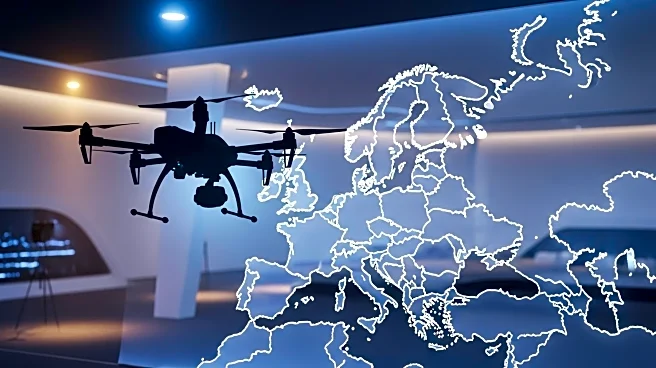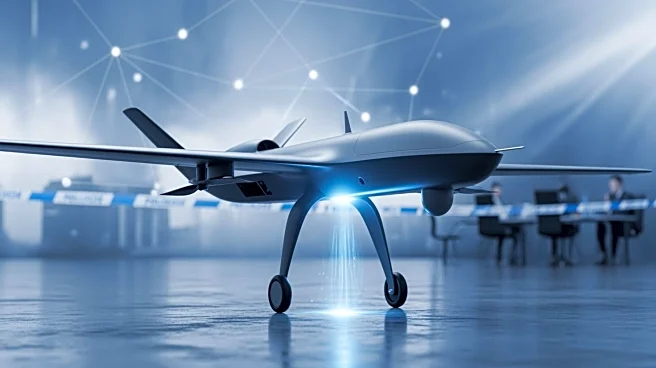What's Happening?
European Union leaders are convening in Copenhagen to discuss enhancing European defense in response to recent Russian drone incursions into EU airspace. Danish Prime Minister Mette Frederiksen emphasized the need for a strong response to Russia, which she identified as the primary threat to European security. The summit follows drone disruptions at Danish airports, prompting Denmark to increase security measures, including banning civilian drone flights and restricting traffic in Copenhagen. Several EU member states, including Poland and Estonia, have supported plans for a 'drone wall' to detect and neutralize Russian drones. International allies, including the US, UK, and Germany, are providing anti-drone and surveillance support to Denmark during the summit.
Why It's Important?
The summit highlights the growing concern among European nations regarding Russian military activities, particularly drone incursions, which pose a threat to regional security. The proposed 'drone wall' reflects a strategic shift towards more robust defense mechanisms to protect European airspace. This development could lead to increased military collaboration among EU countries and their allies, potentially impacting defense budgets and policies. The situation underscores the geopolitical tensions between Europe and Russia, with implications for international relations and security strategies.
What's Next?
The summit is expected to result in concrete plans for enhancing European air defense capabilities, including the potential implementation of the 'drone wall.' Discussions may also focus on financing and command structures for the proposed defense measures. The outcome of the summit could influence future NATO consultations and collaborations, as member states seek to address the security challenges posed by Russian activities. Continued dialogue and strategic planning are anticipated as Europe navigates the complex security landscape.
Beyond the Headlines
The focus on drone defense raises ethical and legal questions about surveillance and military responses to perceived threats. The development of a 'drone wall' could lead to debates on privacy, civil liberties, and the balance between security and individual rights. Additionally, the situation may prompt discussions on the long-term implications of increased militarization in Europe and its impact on diplomatic relations with Russia.









